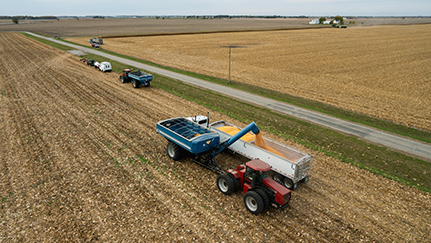Farm & agribusiness resources
Important first steps to protecting your farmland investment
Get help from the #1 Farm insurer in the U.S.1 Tell us a little about yourself and we’ll send you our Farmland Ownership Protection Guide to help you manage the ownership or renting of land.
Enlist the right help to find the right liability protection
Passing farm assets from one generation to the next
Watch how a family worked together with Nationwide to keep the family farm
Our most recent information for new farmland leasers and owners
Connect with Nationwide
Learn about Nationwide agribusiness insurance
Subscribe to the Ag Insight Center email newsletter
